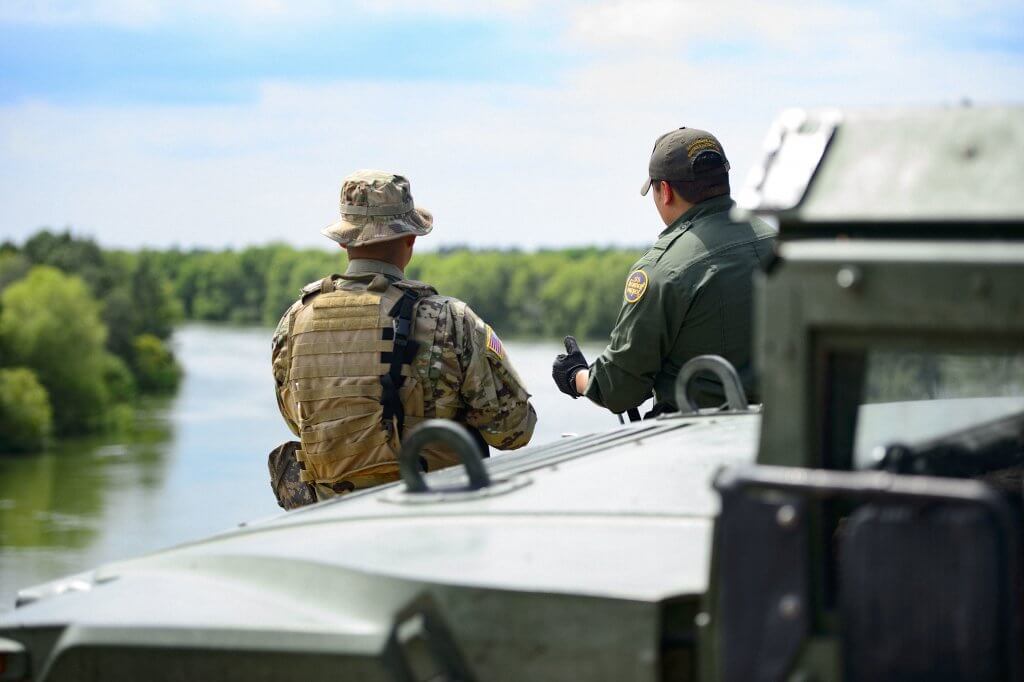Duty calls often for National Guard soldiers and airmen. Between combat tours abroad and emergencies at home, most guard members far exceed their recruiters’ promises of weekend drills and two weeks of annual training.
“Service members are stretched too thin,” said a senior California Army National Guard officer, speaking on condition of anonymity. “And if you’re low-ranking, you don’t really have a voice. If your professional life is suffering from constant mobilizations, your only voice is to not reenlist.”
But some Guard members are exploring another path to advocacy: unionization.
In recent months, Guard members in a handful of states have taken the unprecedented step of exploring union support, hoping to curb the frequency of stateside missions. Law prohibits Guard members on federal orders from unionizing. But in January, Department of Justice lawyers stated in court filings that such restrictions don’t apply to guardsmen on state orders.
The National Guard Bureau deferred to the Justice Department as the authority on the matter, and it remains to be seen how the push to unionize will flesh out at the state level. As the situation evolves, reactions among Guard members are mixed.
“I can understand why there would be a push for unions among some troops,” said a senior Texas Air National Guard officer, also speaking on condition of anonymity. “The biggest complaint I’ve encountered is they’re not given a deadline on when they’re coming home or their orders are repeatedly extended, often on short notice.”
Unionization efforts in Texas
In Texas, the unionization effort centers on Operation Lone Star, the state’s massive border mission. In March 2021, Gov. Greg Abbot declared a state of emergency and mobilized the National Guard to slow illegal border crossings. In short order, about 10,000 Guard members were called to full-time service.
RELATED: National Guard activations continue to fill gaps in 2022
“I think the media reports [about conditions on the border mission] were overblown,” said the same Texas Air Guard officer, referring to allegations of chronic pay issues and deplorable living conditions. “In my experience, the work environment is actually pretty manageable. That said, their whole life is often in limbo, not only for them, but also for their civilian employers. We have people leaving [the Texas Guard] left and right.”
Rather than depart in protest, however, some Guard members approached the Texas State Employees Union. Its president, Judy Lugo, confirmed for Reserve & National Guard Magazine that TSEU is working with members of the state’s Army National Guard: “All Texas State Employees are invited to join, participate and enact change: this includes the proud men and women of the Texas Army National Guard.”
But according to the Texas Military Department, unionization isn’t an option for its members.
“Service members should not be misled by union agitators into believing that Texas law allows them to engage in collective bargaining. It does not,” said Army Col. Rita Holton, Public Affairs Director for the Texas Military Department, referencing Chapter 617 of the Texas Government Code.
Holton also emphasized that the Texas Guard is working to remedy concerns as they arise, such as pay challenges and hardship requests. Military leadership, she said, is proactive in addressing concerns from the field.
“My vision of unions is that role is really what military leadership is for, especially senior NCOs,” said Army Master Sgt. Jessica Espinosa, echoing the stance of Texas Guard leadership.
Espinosa, who now serves with the Army Reserve’s 416th Theater Engineer Command, in Darien, Illinois, mobilized for about two years as a junior NCO with the California Army National Guard in support of its border missions in 2010-12.
“There was definitely some strain, especially on relationships, but by and large, it went smoothly,” said Espinosa. “The leadership knew these were people with real lives outside the Guard, not just personnel supporting a mission.”

